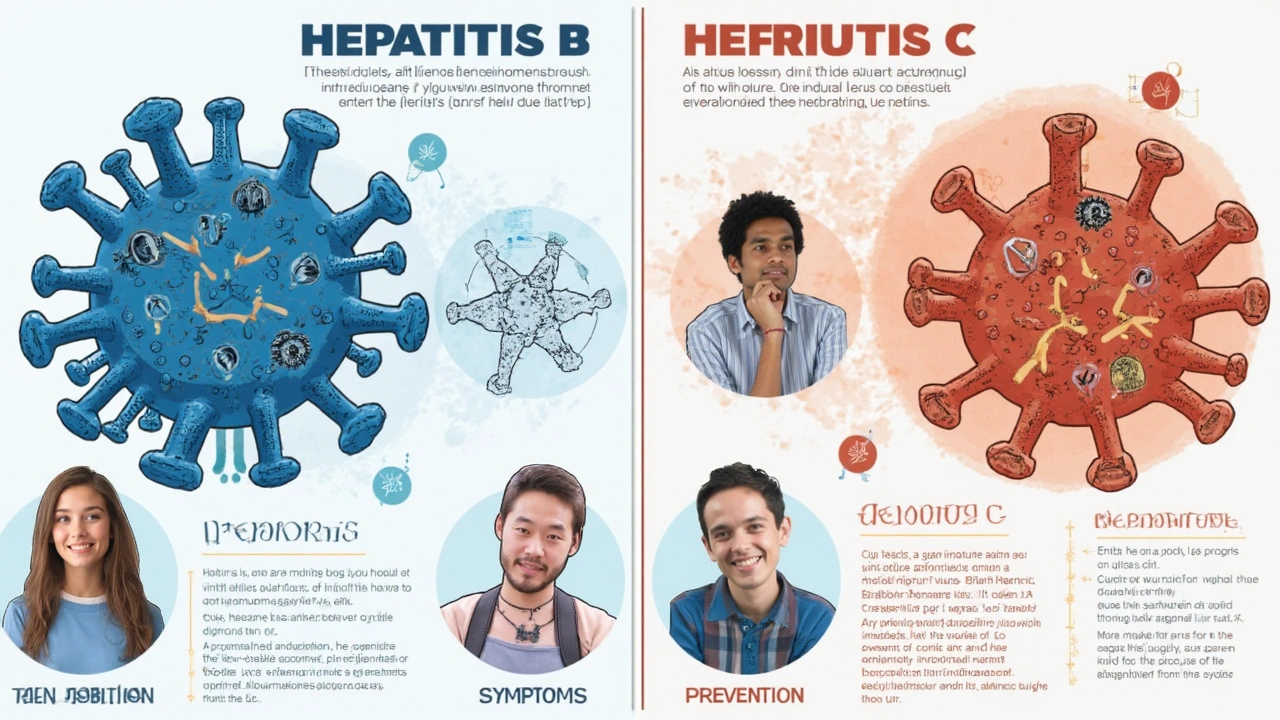Hepatitis treatment: what works and what to expect
Got a hepatitis diagnosis or worried you might have one? You’re not alone. Treatment depends a lot on the type of hepatitis you have—viral types behave very differently and so do their treatments. This page will walk you through the main options, what tests matter, and practical safety steps you can use right away.
First, the quick map: hepatitis A and E are usually short-lived and treated with rest and fluids; hepatitis B can become chronic and is usually managed with long-term antivirals; hepatitis C is now curable in most people with direct-acting antivirals (DAAs). There are also non-viral causes—autoimmune or drug-induced hepatitis—that need different approaches.
HCV (hepatitis C): modern treatment is a game-changer. Most current DAA regimens cure over 95% of patients after 8–12 weeks. These pills target the virus directly, are well tolerated, and work for people with or without advanced liver disease. You’ll need baseline testing (viral load, liver fibrosis assessment) and a follow-up viral load 12 weeks after finishing therapy to confirm cure. Mention all your meds to the prescriber—some drugs and supplements can interact.
HBV (hepatitis B): the goal is viral suppression, not usually a cure. Widely used antivirals like tenofovir and entecavir lower viral levels and protect the liver long-term. Many people stay on therapy for years; others can stop under careful monitoring. Vaccination prevents HBV—make sure close contacts are vaccinated, too.
HAV and HEV (A and E): these usually cause acute illness. Treatment is mainly supportive—hydration, rest, monitoring. There’s a vaccine for hepatitis A that’s effective and recommended for people at risk. Hepatitis E is often linked to contaminated water in certain regions; prevention focuses on safe food and water.
Monitoring and tests
Your care team will use blood tests (ALT, AST, bilirubin), viral load testing for B and C, and imaging or FibroScan to check scarring. Sometimes a liver biopsy is needed, but newer scans often replace it. Regular monitoring matters if you’re on antivirals or have fibrosis—small changes on a test can guide big treatment decisions.
Practical tips and safety
Avoid alcohol and unnecessary herbal supplements while your liver heals—some herbs can damage the liver. Keep vaccine status up to date (A and B), practice safer sex, and never share needles or razors. If you’re taking other medicines, bring a full list to every appointment to prevent interactions. If you notice jaundice, severe belly pain, vomiting, or confusion, get medical help right away.
If you want more info on specific drugs, costs, or where to find reputable pharmacies, SamRx has detailed guides and reviews to help you talk to your doctor. Testing is cheap and fast—if you have risk factors, book a test and ask about the newest treatment options. Treatment works; getting tested is the first step.
Chronic Hepatitis B vs Hepatitis C: Symptoms, Risk, and Treatment Differences
Hepatitis B and C both attack the liver, but they’re not the same beast. This article dives deep into the differences, from how you catch them to what they do to your body, and what you can do about it. You’ll get real advice, eye-opening stats, and practical tips if you or someone you know is affected. There’s a lot more to these viruses than most people realize. Long term health depends on knowing what sets them apart.
Read more
